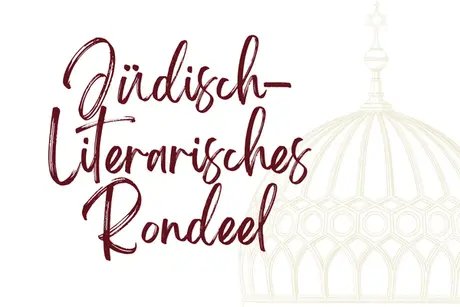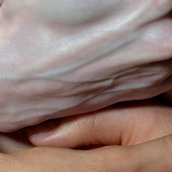
Since October 7, terrible images have been going around the world, images of the Hamas terror attack, images of horror and devastation, images of hostages held hostage, images of suffering and destruction in Gaza. In Tel Aviv, new street art has been created to capture the experience. Which images can be seen in Israel? Which ones in Germany? Which images do we share? Which ones separate us?
The year 2025 marks 60 years of diplomatic relations between Israel and Germany - an anniversary that reminds us of Germany's specific historical responsibility as well as recognizing the vibrant and by no means self-evident partnership between the two countries.
At the same time, this anniversary comes at a time of profound uncertainty: the terrorist attacks by Hamas on October 7, 2023 and the subsequent and ongoing war in Gaza have brought the relationship between Israel and Germany into focus in a special way. Hardly any other topic is currently being debated in the German public with comparable emotionality and intensity. All the more reason for the anniversary to call for reflection and dialog.
The New Synagogue Berlin - Centrum Judaicum Foundation is taking this as the starting point for three evenings as part of its Jewish-Literary Rondeel series. This year, German and Israeli authors will enter into an exchange about what shapes and moves their work.
The three themed evenings will focus on the following central questions: What connects authors in both countries, what distinguishes their realities? How do they see each other? Which texts by other authors have influenced their own work? And: What role can literature play in times of social upheaval?
The series is organized in cooperation with theLeo Baeck Institute Jerusalem.
It is supported by theHeinrich Böll Foundationand sponsored by theSenate Department for Culture and Social Cohesion.
- Location: Repräsentantensaal, Neue Synagoge Berlin - Centrum Judaicum
- Oranienburger Straße 28-30, 10117 Berlin
- Registration: info@centrumjudaicum.de
The individual theme evenings (each at 6 pm)
9. October: Worlds of images after October 7 (with Adriana Altaras and Yirmi Pinkus)
Since October 7, terrible images have been going around the world, images of the Hamas terror attack, images of horror and devastation, images of hostages held hostage, images of suffering and destruction in Gaza. In Tel Aviv, new street art has been created to capture the experience. Which images can be seen in Israel? Which ones in Germany? Which images do we share? Which ones divide us?
Greeting:Galili Shachar, Chairman Leo Baeck Institute Jerusalem
Adriana Altaras, born in Zagreb and raised in Germany, is an actress, director and author. She regularly works at major theaters and opera houses in German-speaking countries and can be seen in numerous film and television productions. With her successful books - including the bestseller Tito's Glasses (2011) - she has made a name for herself as a writer. She now lives and works in Berlin.
Durs Grünbein, born in Dresden in 1962, is one of the most important contemporary German-language poets. Since his debut Grauzone morgens (1988), he has published more than a dozen volumes of poetry and essays and has received numerous awards, including the Georg Büchner Prize (1995) and the Tranströmer Prize (2012). His works combine autobiographical experiences with reflections on history and cultural philosophy and have been translated into numerous languages. Grünbein lives in Berlin and Rome.
Further dates:
4. November: Queer lifeworlds in Germany and Israel (with Ronya Othmann and Sharron Hass)
Being Jewish and queer often means being a double outsider. Growing anti-Semitism goes hand in hand with homophobia, in Berlin and elsewhere. The Jewish religion has a tense relationship with homosexuality. On the other hand, new forms of solidarity with one another and participation with others are emerging. We ask about experiences and perspectives.
4. December: Germans and Jews (with Durs Grünbein and Ofer Waldman)
German, Israeli, German-Jewish and everything in between: What agreement or disagreement is there between Germans, Israelis and German Jews on the issues of the day, especially after October 7? What language barriers or deeper barriers are there? What history are we talking about, what about universalism and particularism when we speak of "Germans" and "Jews"?
Additional information
Meeting point: Representatives' Hall
Booking: info@centrumjudaicum.de
Booking: info@centrumjudaicum.de
Dates
October 2025
| Mo | Tu | We | Th | Fr | Sa | Su |
|---|---|---|---|---|---|---|
1
|
2
|
3
|
4
|
5
| ||
6
|
7
|
8
|
9
|
10
|
11
|
12
|
13
|
14
|
15
|
16
|
17
|
18
|
19
|
20
|
21
|
22
|
23
|
24
|
25
|
26
|
27
|
28
|
29
|
30
|
31
|



